8 1/2 (1963)
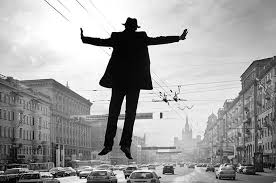
It has become commonplace to call 8 1/2 the greatest film about filmmaking, but that’s a disservice to Fellini’s wildly imaginative rumination on creation. It’s about all of us. It’s about the moments we become so consumed by the past that the present disappears, the moments during writing/painting/masturbating when we lose all sense of ourselves and the world keeps knocking at the door with laws and responsibilities and we just want to scream that we’re all going to die and none of their horseshit is important, the times we want our critics to hang for their lack of empathy…it’s…it’s everything. 8 1/2 is Ulysses for film fanatics. I can’t even comprehend how much I love this film.
Persona (1966)
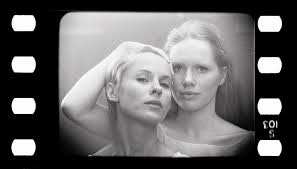
I’m not going to wax episodic bullshit about identity…it’s all here. It’s a jumbled mess. It’s beautiful. Okay, I’ll wax episodic a little. Everytime someone I know dies, I just imagine them looking at me and suddenly knowing everything about me, every pathetic and noble thing. They can see the separation of my soul and the damaged, diseased form I’ve taken on Earth. I’d like to think they’re too far beyond the realm of humanity to judge, but who knows? And who knows about Persona? Is it about Dr. Jeckyl and Mr. Hyde? Schizophrenia? The holy and the profane? Lesbianism? It’s forever mysterious, forever haunting. It’s about itself in a lot of ways. Bergman explained the opening in great detail. He was in the hospital without any idea how to move forward. He felt dead, so he looked back to his childhood and the little movie projector he used to have. Bibi Andersson and Liv Ullmann came to visit him. He saw their faces merge. And out came this masterpiece. It’s a simple enough explanation for a complicated film.
The Fearless Vampire Killers (1967)
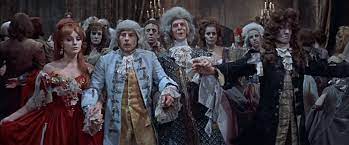
As far as I know, I’m one of seven people in the world who finds this film funny. For those of you who have seen it without once breaking into a chuckle, I have no desire to change your minds. I know I’m in sparsely-populated company. The beauty of the film (visually and aurally) is in stark contrast to its rather infantile sense of humor. For me, the effect is sublime. The Jewish vampire who is not bothered by the cross, the vampire’s ball and subsequent chase, the elaborate sets–it’s an intoxicating brew, completely of its time and only beholden to Polanski’s obsessions. Jack MacGowren is otherworldly as the bumbling but dedicated vampire hunter.
Simon of the Desert (1965)

Ever the jokester, Bunuel claimed that Simon of the Desert wasn’t finished because he spent the production funds on alcohol. The truth (it was part of an intended triptych with two other directors who backed out) is boring. None of this has anything to do with the (complete) brilliance of Bunuel’s film. Simeon Stylites has spent six years, six months, and six days atop a pillar in the desert. A series of ridiculous miracles and temptations ensue. A man without hands is healed. He immediately uses his new hands to beat his child. Much of the beauty of Bunuel is in his directness. His images are uncluttered by “vision”, rather they present absurdity with clarity and a lot of good will. He’s as blasphemous as they come and yet there’s nothing mean-spirited about his films. A riot.
Marnie (1964)
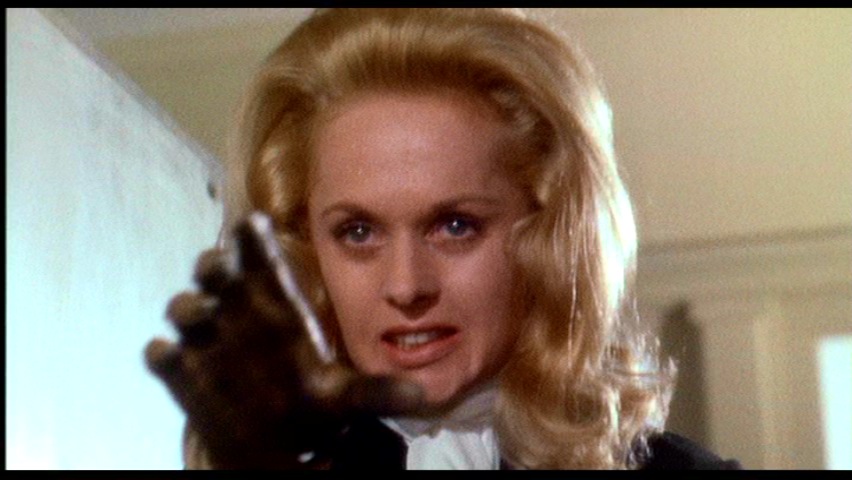
Marnie is considered a problematic film for the modern crowd. However, the modern crowd (in the words of Joe Pesci’s character in Raging Bull) sucks big elephant dicks. Compulsive thief Tippi Hedren (a model of naked, anxious vulnerability) falls into the clutches (or is it the other way around?) of neurotically motivated southern gentleman Sean Connery who blackmails her into marriage and sex. The result is a dense study of masochism, sexual power, and the collective unconsious. With painterly abstraction (the backdrops are obviously fake and they are fantastic!) Hitchcock distorts space into an airless void of red trauma. This is truly film as art. (Note: I always say that Vertigo and Marnie make a great double feature, but because everyone loves the film about death and hates the one about control, I offer Fassbinder’s Martha (1973) as an excellent companion piece.)
Point Blank (1967)
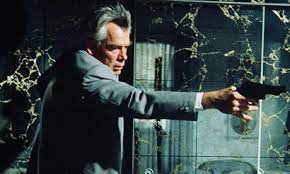
What do the outlaws and the gangsters and the cannibals do when the world becomes modern? Believe it or not, they struggle to adapt. Godard’s original title for Alphaville was Tarzan vs IBM. That would be an apt title for Point Blank. Lee Marvin plays the usual Lee Marvin character, a tough, morally complicated thief who wants his money. That’s all he wants. The problem is that he’s dealing with a corporation. They don’t have much cash on hand and as soon as you murder someone, you just have to keep climbing the corporate ladder. It’s an endless, soul-destroying journey into a different heart of darkness. God, the 60s had some killer action movies. A year later, Bullitt was released. They’re both sharply designed and shot, cool to the point of abstraction, and wonderfully offbeat.
Playtime (1967)

Playtime is Jacques Tati giving the audience a dose of pure cinema. He doesn’t need character identification or “bits” to entertain. It has been famously said (I’m too lazy to look up who said it) that Playtime is the only movie you have to see multiple times from different seats in the cinema. The way you watch the frames determines the experience you’ll have because Tati creates layers of information within shots. There’s no film that makes you feel more alive. And there’s another way to watch this film. You stand (as discreetly as possible) in front of the cinema and watch the audience. You may not hear a single laugh, but you will see nothing but smiles. It’s a joyous experience that demands a cinema viewing. Fuck Nolan. Fuck Barbie. This is the one film you absolutely must see on a big screen. If the chance ever comes your way, don’t miss it. Trust me. Oh, and the refelction of the Eiffel Tower is a moment as magical as anything else in cinema.
2001: A Space Odyssey (1968)
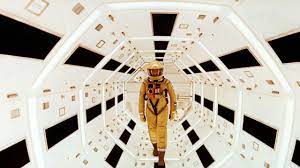
It’s about art. I guess these films are all about art, aren’t they? True consciousness comes from expression, from thinking about stuff for a long time and then awkwardly, fumblingly trying to express it. The monolith is a cinema screen. There, I’ve explained it. Now you can relax and enjoy the experience.
Weekend (1967)
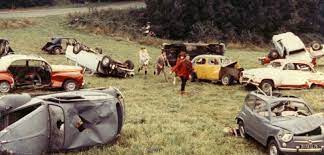
I don’t have to agree with an artist’s politics if it’s black enough and funny enough. Godard’s Weekend is very black and very funny. It’s a true reflection of its creator’s curiosity. Never has Godards theory about dolly shots being a matter of morality been more apparent than the uncaring shrug and dolly shot before the rape. Again, I don’t agree with Godard’s vision or criticism of the world (if he had ever found himself in an apocalypse, I’m sure he would have been the first one whining about a lack of cheese), but this is a great film.
Blow Up (1966)

Our senses are useless, but they’re all we’ve got to analyze the world around us. Sometimes, paranoia is only a matter of opinion. I’m not sure if Blow Up is better than Red Desert, so you should probably watch them both.

